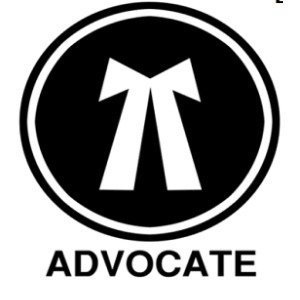Best Faith-Based Law Lawyers in Ramallah
Share your needs with us, get contacted by law firms.
Free. Takes 2 min.
List of the best lawyers in Ramallah, Palestine
About Faith-Based Law in Ramallah, Palestine
Faith-Based Law in Ramallah, Palestine, primarily consists of the application of Sharia (Islamic law) and Christian ecclesiastical laws in personal status matters. This legal framework governs issues such as marriage, divorce, inheritance, and family disputes. Faith-Based Law is administered by religious courts, which operate alongside civil courts within the legal system. In Ramallah, the diversity and coexistence of different religious communities contribute to a unique legal landscape where faith-based principles significantly impact daily lives.
Why You May Need a Lawyer
There are several situations in which individuals may require legal assistance in matters related to Faith-Based Law:
- Marriage and Divorce: Navigating the legal intricacies of marriage contracts, dowries, and divorce proceedings.
- Inheritance: Understanding the division of estates according to religious laws and resolving disputes among heirs.
- Child Custody: Handling sensitive child custody cases within the framework of religious law.
- Property Rights: Addressing property disputes that involve religious law provisions.
- Conversion and Apostasy: Legal matters involving changes in religious affiliation and their implications.
A lawyer knowledgeable in Faith-Based Law can provide crucial guidance and representation in these areas, ensuring that legal rights are protected under religious and local laws.
Local Laws Overview
In Ramallah, Palestine, Faith-Based Law operates in tandem with civil law. Key aspects of local laws relevant to Faith-Based Law include:
- Sharia Law: Governs personal status issues for Muslims, such as marriage, divorce, and inheritance.
- Christian Ecclesiastical Law: Pertains to personal status matters for Christians, including church marriages and divorces.
- Civil Law: Often intersects with religious laws, particularly in areas such as property and contractual disputes.
- Mixed Legal System: Due to the coexistence of religious and civil courts, legal practitioners must navigate a complex legal environment.
Frequently Asked Questions
1. What is the role of religious courts in Ramallah?
Religious courts in Ramallah deal with personal status issues according to religious laws, covering family matters, marriage, divorce, and inheritance within their respective communities.
2. Can non-Muslims access Sharia courts?
Non-Muslims generally do not seek access to Sharia courts for personal matters; they follow their respective community’s religious courts, such as Christian ecclesiastical courts.
3. How are disputes involving members of different religious communities settled?
Disputes involving different religious communities may require civil court intervention to ensure fair treatment, as religious courts adhere to specific faith-based principles.
4. What is a marriage contract in Sharia law?
A marriage contract in Sharia law is a formal agreement between the bride and groom, often specifying conditions such as dowry and living arrangements, with both religious and legal significance.
5. Does Sharia law apply to non-Muslims for inheritance matters?
No, inheritance matters for non-Muslims in Ramallah are typically handled according to their respective religious laws rather than Sharia law.
6. Are legal documents from religious courts legally binding?
Yes, legal documents from religious courts in Ramallah pertaining to personal status matters are legally binding, provided they conform to applicable laws.
7. Can someone appeal decisions made by religious courts?
Yes, decisions made by religious courts in personal status matters can often be appealed within the religious court system, although options may vary by religion and case specifics.
8. How are mixed-faith couples treated under Faith-Based Law?
Mixed-faith couples may face unique legal challenges, often requiring civil court intervention or agreements to respect both religious laws involved.
9. What role does the Palestinian Authority have in religious court matters?
The Palestinian Authority may oversee certain administrative aspects of religious courts but generally allows religious courts autonomy to adjudicate personal status matters.
10. How important is legal representation in religious court cases?
Legal representation is crucial as it helps navigate complex religious laws, safeguards rights, and provides a fair opportunity to present one’s case effectively.
Additional Resources
For those seeking legal advice in Faith-Based Law, the following resources may be helpful:
- Ministry of Justice - Palestine: Provides information and resources regarding the legal system.
- Palestinian Bar Association: Can help locate qualified legal professionals in Ramallah.
- Local Religious Institutions: Often have legal advisories or representatives who can offer initial guidance.
- Community Organizations: Such as women's rights groups, may offer support and legal assistance services.
Next Steps
If you need legal assistance in Faith-Based Law in Ramallah, consider the following steps:
- Identify the specific legal issue you are facing and whether it falls under religious law.
- Seek initial guidance from local religious institutions or community organizations.
- Contact a lawyer with expertise in Faith-Based Law through the Palestinian Bar Association.
- Prepare necessary documents and information relevant to your case for an initial legal consultation.
- Understand your legal rights and options with the help of your legal representative.
Taking these steps will help ensure you receive the appropriate legal support and resolution to your case in Faith-Based Law.
Lawzana helps you find the best lawyers and law firms in Ramallah through a curated and pre-screened list of qualified legal professionals. Our platform offers rankings and detailed profiles of attorneys and law firms, allowing you to compare based on practice areas, including Faith-Based Law, experience, and client feedback.
Each profile includes a description of the firm's areas of practice, client reviews, team members and partners, year of establishment, spoken languages, office locations, contact information, social media presence, and any published articles or resources. Most firms on our platform speak English and are experienced in both local and international legal matters.
Get a quote from top-rated law firms in Ramallah, Palestine — quickly, securely, and without unnecessary hassle.
Disclaimer:
The information provided on this page is for general informational purposes only and does not constitute legal advice. While we strive to ensure the accuracy and relevance of the content, legal information may change over time, and interpretations of the law can vary. You should always consult with a qualified legal professional for advice specific to your situation.
We disclaim all liability for actions taken or not taken based on the content of this page. If you believe any information is incorrect or outdated, please contact us, and we will review and update it where appropriate.










